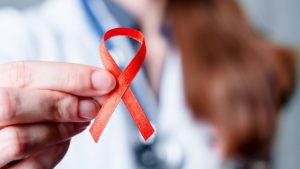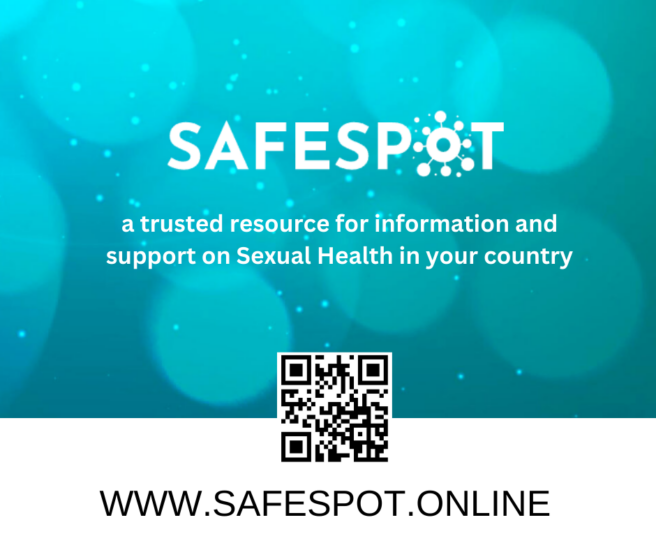 In 2018, AFEW Kyrgyzstan started training the doctors of family health centres and maternity clinics in providing assistance to the pregnant women who use psychoactive substances (PAS) within the project “Bridging the Gaps: Health and Rights for Key Populations”.
In 2018, AFEW Kyrgyzstan started training the doctors of family health centres and maternity clinics in providing assistance to the pregnant women who use psychoactive substances (PAS) within the project “Bridging the Gaps: Health and Rights for Key Populations”.
Fear of judgment
According to the assessment held in 2014 within the project supported by the Global Fund to Fight AIDS, TB and Malaria, the number of people who inject drugs in the country was 25,000 people, 12% of them being women. Besides, another study showed a rapid growth in the number of pregnant women with HIV.
Women who use drugs usually seek medical assistance less frequently than men. The reason for it is their fear of judgment and discrimination, fear to lose their children. In 2016, AFEW Kyrgyzstan and a group of experts with support of the project “Bridging the Gaps: Health and Rights for Key Populations” developed an action plan for women who use psychoactive substances to provide comprehensive and timely support to such women. In the beginning, guidelines for doctors and nurses were developed called “Management of Pregnancy, Labour and Postpartum Period in Women Who Use Psychoactive Substances”. Besides, AFEW Kyrgyzstan together with experts and community members organized workshops for the doctors of family health centres and maternity clinics in Bishkek and Osh and introduced a training module in the post-graduate education of health workers. Monitoring of the knowledge using such guidelines allowed identifying a big gap in the level of knowledge between the doctors from Bishkek and Osh. There can be various reasons for such situation, but the decision taken as a result of the monitoring was to support the activities of a multidisciplinary team led by the Podruga Charitable Foundation to provide quality training to the health workers in Osh. Such team was created with support of AFEW Kyrgyzstan and the project “Bridging the Gaps: Health and Rights for Key Populations”.
Fighting stigma and discrimination
Since March 2018, the multidisciplinary team trained 72 doctors in all family health centres and maternity clinics in Osh. According to Irina who is a social worker at Podruga Charitable Foundation and the project coordinator, when most health workers come to the workshops, they lack trust. They say: “We do not have any female patients who use drugs, and even if there are some, why do we need to treat them – they can be just sent somewhere, and that’s it”. “Usually, women do not tell doctors that they use drugs, they are afraid to say that they have HIV”, says Irina. “As for the doctors, they do not pay attention to it. However, pregnant women living with HIV require a special approach to avoid possible complications and to make sure that mothers-to-be are not afraid to seek medical assistance and get tested. The truth is, though, that after the training most of them change their point of view”.
Before start, all the training participants fill in questionnaires. The results are not so brilliant – the average score is 5-7 correct answers out of 20. After they complete the training, the results are much better: most health workers have not more than one incorrect answer or make no mistakes at all. “I am very happy that after the workshops doctors at least start noticing that there are women who use PAS among their patients. Now, if an HIV-positive woman or a woman who uses PAS comes to them, they often call me or the trainers, we look at her case and try to help every woman. That’s how lives are saved”, smiles Irina.
To a great extent, the training is effective due to the fact that doctors with extensive experience are part of the multidisciplinary team. Each of the trainers is a role model and a real expert. Thanks to the trainers’ reputation, the participants are more willing to listen to them and agree with them. That is how the ice of misunderstanding and ill treatment is broken.
Gradual improvement
It should be noted that the project helps the health workers to work not only with pregnant women. Nadezhda Sharonova, Director of Podruga Charitable Foundation, says that now it is easier for their organization to find friendly specialists and women who use PAS do not have to fight hard to receive health care as more doctors are now willing to help the patients and treat them better.
“Once a woman came to me, she started crying and said that a cleaner told all other patients of the maternity clinic about her HIV positive status, so nobody wanted to talk to her, people turned their backs on her and the doctors were rude and neglectful”, tells Irina. She says that such cases are less frequent now. Irina recognizes that through one-time training it is not possible to ruin all the fears and stereotypes, which have been building up for many years, but it can at least considerably improve the situation. In our work, the phrase “improve the situation” means better lives of women and children that can be saved with this new knowledge.




